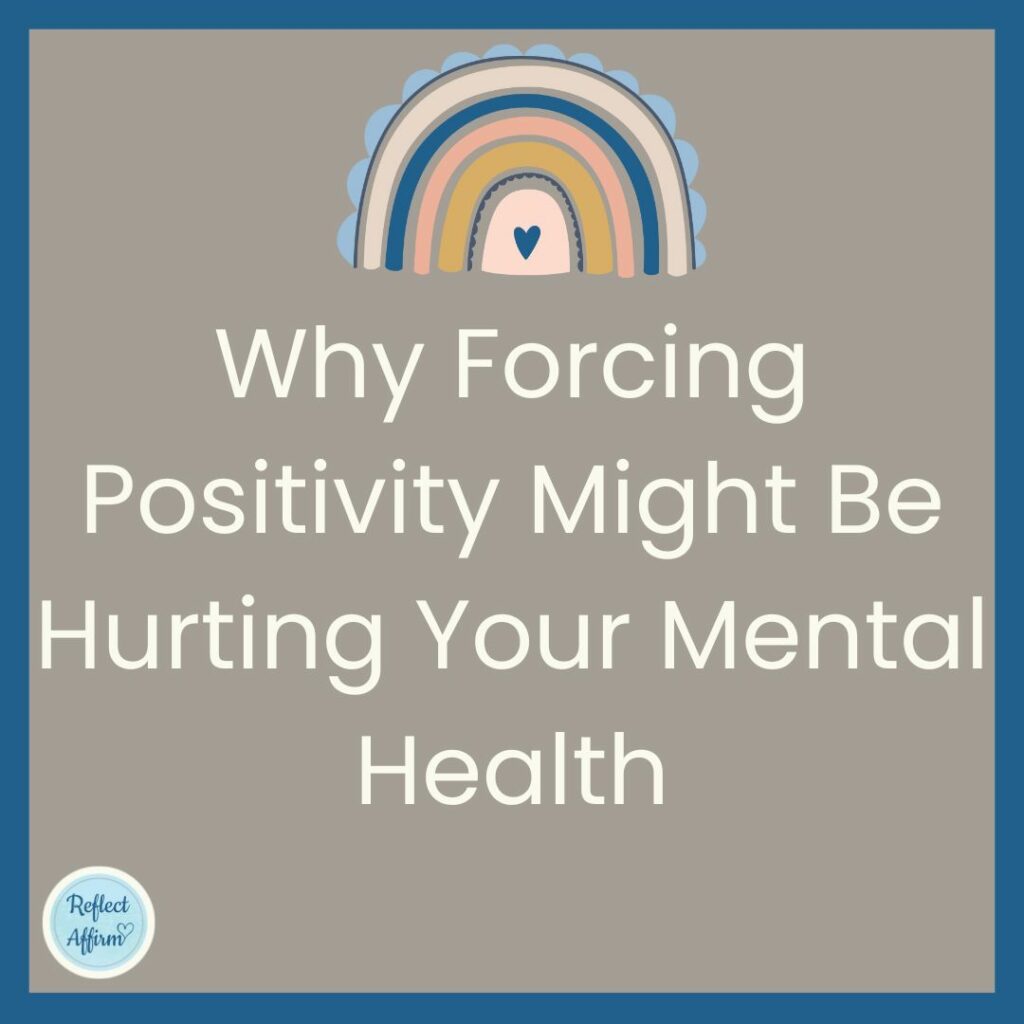
Ever feel like you’re forcing a smile even when things aren’t okay? You’re not alone. We live in a world that glorifies positivity, but what happens when it’s all just a front? While staying positive is often seen as a strength, forcing it can do more harm than good.
In fact, pretending everything’s fine might be the very thing that’s hurting your mental health.
1. Suppressing Genuine Emotions Creates More Stress
Have you ever tried to push away sadness or anger, only to have it bubble up even stronger later on? Suppressing your true feelings doesn’t make them disappear; it just adds to your stress. When you force yourself to stay positive, you’re essentially telling your mind that certain emotions aren’t allowed. But emotions are there for a reason—they’re signals that something needs your attention.
Ignoring them or pretending they don’t exist can lead to a buildup of unresolved feelings, which only creates more stress in the long run. This emotional bottling can even manifest physically, leading to headaches, tension, and other stress-related symptoms.
What to do instead: Allow yourself to feel whatever comes up, without judgment. Embrace the fact that it’s okay not to be okay all the time. Recognize that your emotions are valid, whether they’re “positive” or “negative.” By acknowledging your feelings, you give yourself the space to process and move through them, reducing overall stress and promoting true emotional well-being.
2. Unrealistic Positivity Leads to Disappointment
Ever set yourself up with sky-high expectations, only to come crashing down when reality didn’t match? That’s the danger of unrealistic positivity. When you force yourself to believe that everything will always work out perfectly, you set yourself up for disappointment.
Life is full of ups and downs, and expecting everything to be perfect all the time is simply unrealistic. When things inevitably go wrong, the crash from that forced positivity can be hard to handle. Instead of helping you cope, it can leave you feeling even worse because now, on top of the original problem, you’re also dealing with the disappointment of unmet expectations.
What to do instead: Practice realistic optimism. It’s perfectly fine to hope for the best but also prepare for the possibility that things might not go as planned. By balancing hope with realism, you can navigate life’s challenges with resilience, without setting yourself up for a big emotional fall. Accept that life’s imperfections are what make it real, and learning to roll with the punches is a healthier way to maintain a positive outlook.
3. Forcing Positivity Can Isolate You from Others
Ever feel like you have to put on a happy face, even when you’re hurting inside? This can be incredibly isolating. When you’re always forcing positivity, you might find it hard to connect with others on a deeper level.
People around you may perceive you as unrelatable or insincere because they sense something’s off, even if they can’t put their finger on it. Moreover, by not sharing your true feelings, you miss out on the support and understanding that others can offer. It creates a wall between you and those who might help you feel better.
What to do instead: Be open and honest with the people you trust. Sharing your true feelings, even the tough ones, can strengthen your connections and help you feel less alone. Vulnerability isn’t a weakness; it’s a way to create genuine bonds with others. When you allow yourself to be seen as you are, you invite others to do the same, fostering a deeper sense of community and mutual support.
4. It May Prevent Addressing Underlying Issues
Have you ever plastered on a smile to avoid dealing with what’s really bothering you? While it might seem easier to push through with forced positivity, this approach can prevent you from addressing the root cause of your distress.
Ignoring underlying issues doesn’t make them go away; it just delays the inevitable and often makes things worse over time. When you’re always putting on a positive front, you might convince yourself that everything’s fine, even when it’s not. This can lead to unresolved problems festering beneath the surface, which could eventually blow up in more significant ways.
What to do instead: Take the time to dig deeper into what’s really going on. If you’re feeling off, ask yourself why. What’s the underlying issue that needs your attention? Addressing problems head-on, whether through self-reflection, talking to someone, or seeking professional help, is the key to resolving them. By facing your issues instead of masking them with forced positivity, you’ll find more effective ways to cope and move forward.
5. Creates Pressure to Maintain a False Persona
Ever felt like you’re living a double life—one where everything’s perfect on the outside, but inside, it’s a different story? Constantly forcing positivity creates pressure to maintain a false persona. This can be exhausting because you’re constantly trying to live up to an image that isn’t real.
Over time, the gap between your true self and the persona you’re projecting can grow wider, leading to feelings of disconnection and inauthenticity. It’s a heavy burden to carry, and eventually, it can wear you down.
What to do instead: Embrace your true self, flaws and all. Authenticity is far more liberating than trying to maintain a perfect image. When you allow yourself to be who you are, you’ll feel less pressure and more peace. People are drawn to authenticity because it’s relatable and real. By dropping the act and being yourself, you’ll attract more genuine relationships and experiences, which in turn can boost your mental well-being.
6. Can Lead to Emotional Exhaustion
Ever felt utterly drained from trying to keep up the act of positivity? That’s because constantly forcing yourself to stay positive can lead to emotional exhaustion. It takes a lot of energy to suppress your true feelings and put on a happy face, especially when things aren’t going well.
Over time, this can leave you feeling depleted, both emotionally and physically. Emotional exhaustion can also impact your ability to cope with everyday stressors, making everything feel even more overwhelming.
What to do instead: Give yourself permission to rest emotionally. Understand that it’s okay to not be upbeat all the time. Allow yourself to experience a full range of emotions, and take breaks when you need to. Rest isn’t just about physical recovery; it’s about giving your mind and heart a chance to recharge as well. By acknowledging your limits and honoring your need for rest, you’ll prevent burnout and maintain better overall mental health.
7. Discourages Healthy Emotional Expression
Do you ever feel like you can’t show any emotion other than happiness? Forcing positivity can discourage healthy emotional expression, leading to a lack of emotional balance. Emotions like sadness, anger, and frustration are natural and necessary—they’re your body’s way of communicating that something needs to be addressed.
When you suppress these emotions in favor of forced positivity, you miss out on the opportunity to process them healthily. This can lead to unresolved feelings building up, which might eventually manifest in unhealthy ways, like outbursts or depression.
What to do instead: Practice expressing your emotions in a healthy manner. This might involve talking about how you’re feeling with someone you trust, writing in a journal, or finding a creative outlet like art or music. The goal is to let your emotions flow, rather than keeping them bottled up. By embracing all your feelings, not just the positive ones, you’ll develop a more balanced and healthy approach to your emotional well-being.
Finding Balance for True Mental Well-Being
The pursuit of positivity isn’t inherently bad, but when it becomes forced, it can do more harm than good. True mental well-being comes from embracing all of your emotions and experiences, not just the happy ones. It’s about finding balance—acknowledging the tough times while still holding onto hope for better days.
By letting go of the need to be positive all the time, you open the door to a more authentic, fulfilling life. So, the next time you’re tempted to force a smile, remember that it’s okay to be real. Authenticity is the key to true mental health and happiness.




